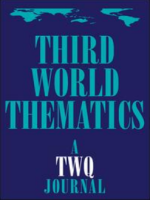The politics of hybridisation
The concept of hybridity has gained momentum in peace and conflict studies over the past decade, as well as informed debates about authority and state formation in the Global South. Hybridity conveys the interweaving of practices, norms, identities and modes of ordering thereby challenging pre-conceived dichotomies between for instance the state and society or modernity and tradition. Exploring conflict and post-conflict contexts through the lens of hybridity and forms of hybridisation has been very helpful in moving beyond simplistic understandings of such contexts as solely the result of state fragility or failure. Instead, it is apparent how societies in the Global South are governed in ways that neither mirror an ideal version of the modern state nor reflect a pure continuity of traditional or customary forms of rule, but reflect a complex, and ever-evolving mixture of sources of authority, practices and norms. However, often overlooked in studies of hybridity is the political contestations over power, positions and resources that these mixtures frequently involve.
This new article by DIIS senior researcher Helene Maria Kyed, explores the politics of hybridisation by focusing on the constitution of authority in post-colonies where no particular set of actors holds a sovereign position and where competition for authority is intense. The theoretical argument of the article is that hybridity does not slip into complete merger or indistinctiveness, but is intertwined with equally ongoing acts of boundary-making – acts that convey distinctions, purity of domains and hierarchies between orders, norms or groups. Indeed, hybridisation makes little sense as a concept, Kyed argues, if it is not critically studied in relation to how various actors in the field of national and local politics are pre-occupied with trying to demarcate their distinct sphere of authority, and concentrate power around particular institutions and resources. The article engages with a broader literature on state formation and chieftaincy in Africa, and draws on Kyed’s own empirical studies in Mozambique on traditional leaders and state police officers. Kyed shows that these two sets of actors engage in various forms of hybridisation to constitute their authority. Chiefs constitute hybrid authorities as they combine sources that are associated with the state, such as the official law, the bureaucracy, official language, and paraphernalia of modern statehood, with sources defined as traditional, such as secret cults, ancestral spirits, and beliefs in witchcraft. Likewise, local state police officers do not simply enforce state law and follow bureaucratic procedures, associated with the official role as state officials, but frequently also engaged with traditional beliefs in evil spirits and witchcraft. These forms of hybridisation, nevertheless interact with chiefs and state police officers’ articulations of their distinctive domain of authority. Rather than viewing hybridity and boundary-making as mutually exclusive social practices, Kyed argues that they exist in a productive tensions, which gives way to new constellations of authority and ordering practices.DIIS Experts


